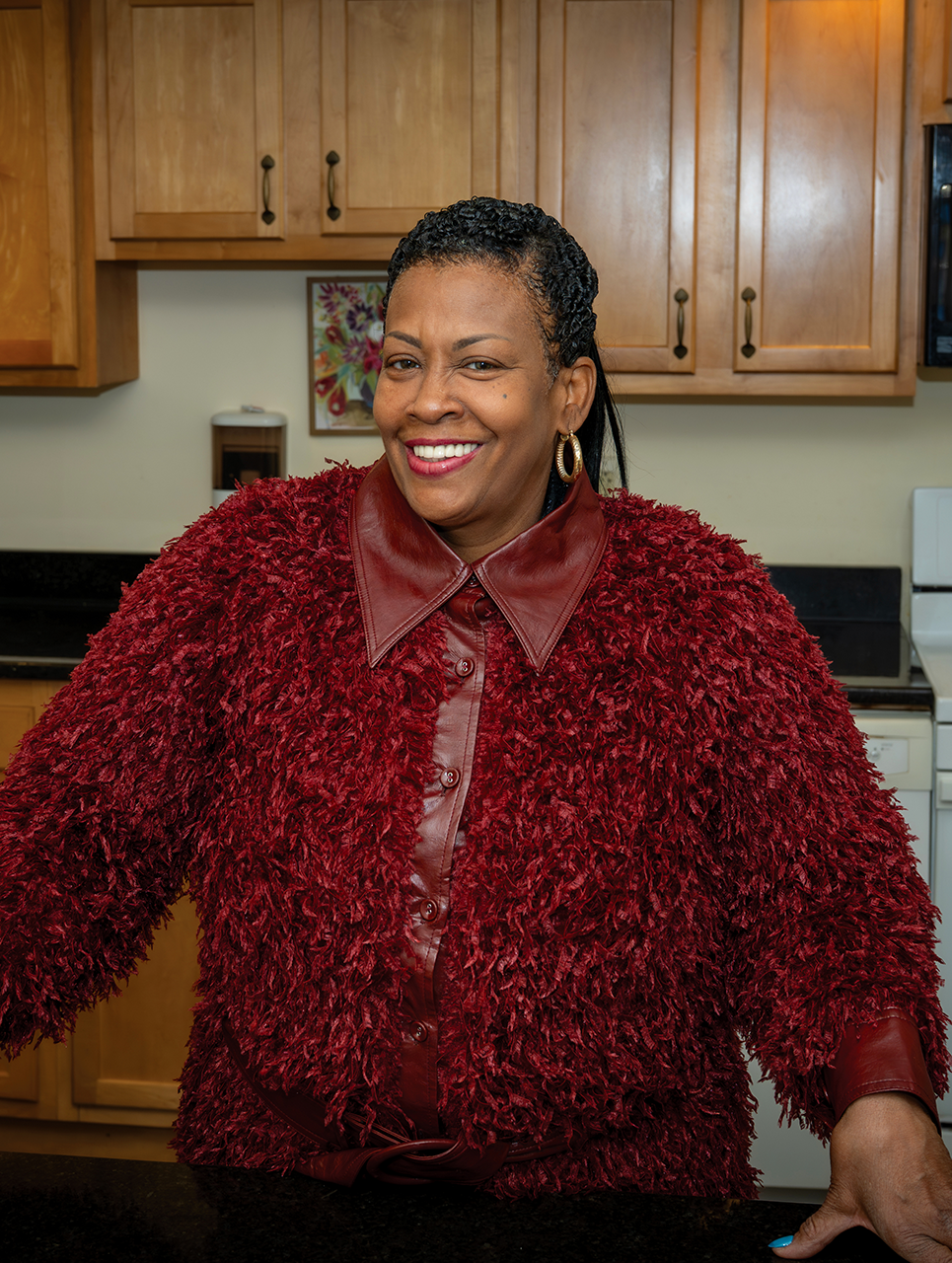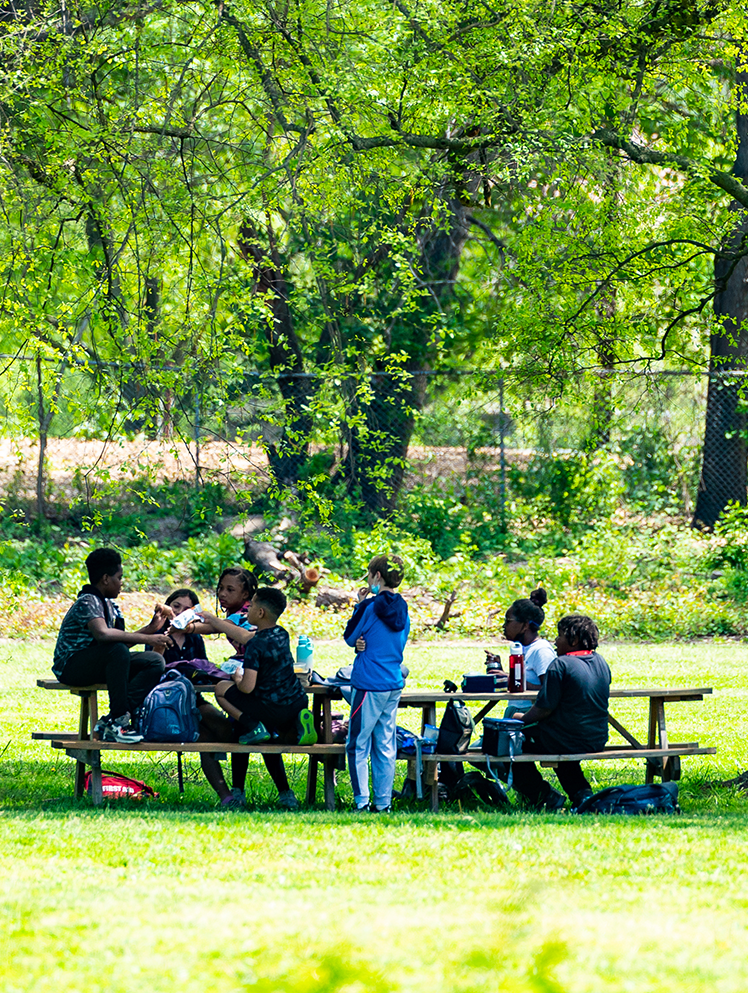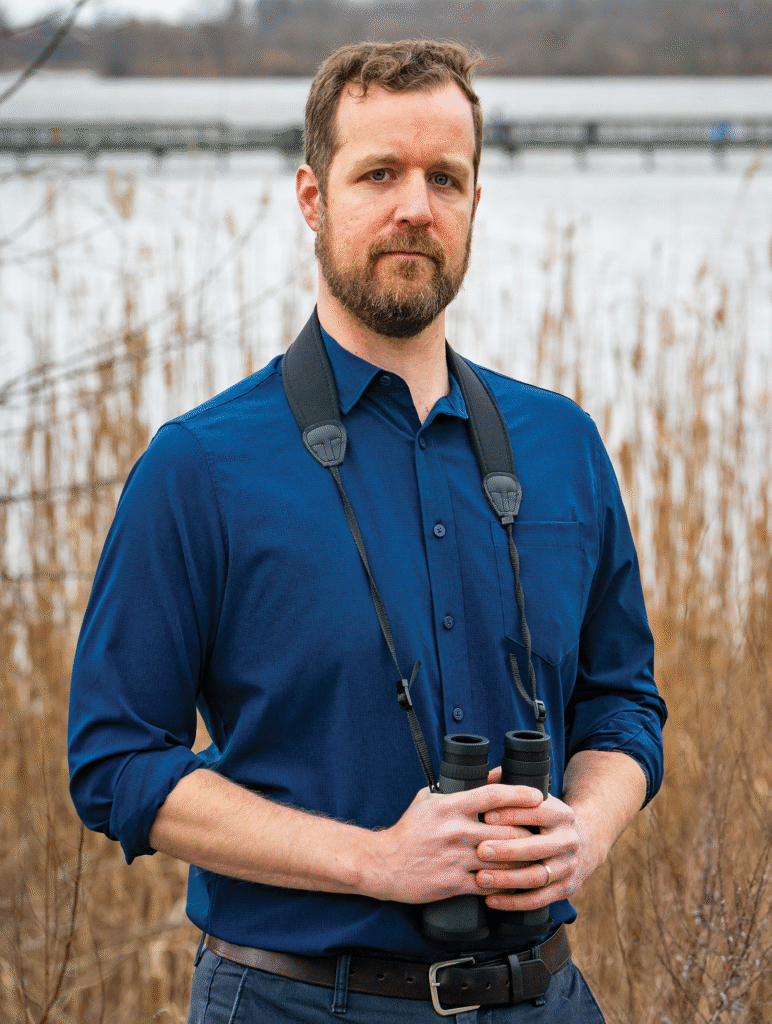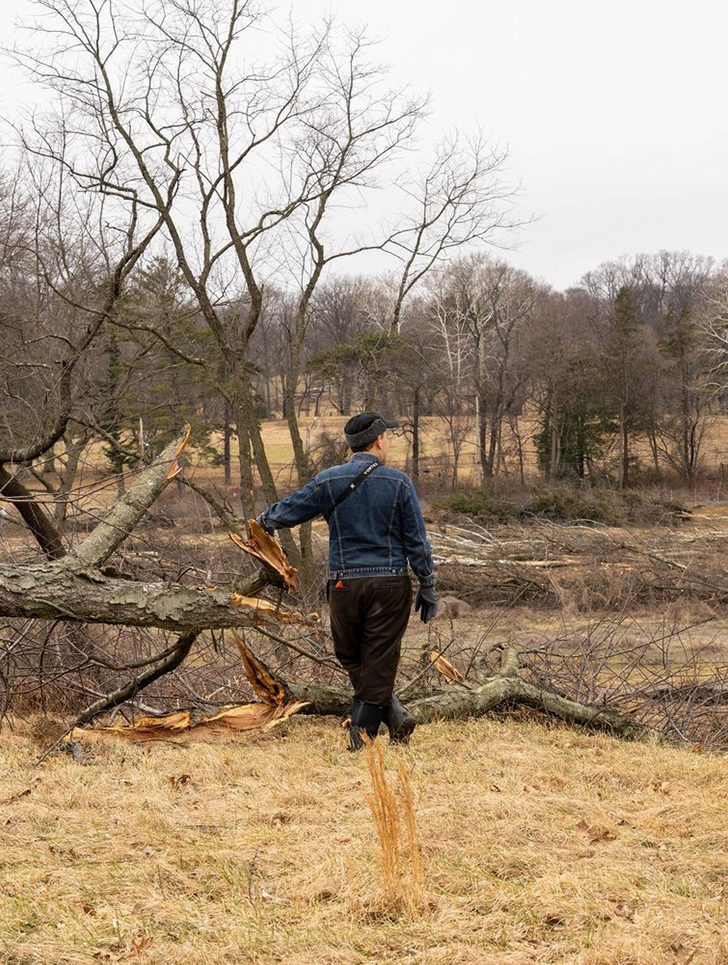First raped at age 12 and then throughout her teens, Reverend Dr. Michelle Simmons began using drugs. In her early 20s, thirsting for a new life, the Germantown native moved to Los Angeles.
“I took my old behaviors with me,” Rev. Simmons says. Convicted of prostitution and a felony, she spent six years incarcerated in Los Angeles County.
Released from prison in 1999 at age 27, she returned to her mother’s home near Philadelphia. That refuge gave her a solid start on the steep climb of reentry. “There was so much I didn’t know,” says Rev. Simmons, who has since earned a doctorate in ministry and a master’s degree in clinical psychology and counseling. In 2001 she founded Why Not Prosper (WNP), a Germantown nonprofit that provides women in reentry with the mentoring and resources Rev. Simmons wishes she’d had.
“We help returning women build on their strengths for successful reentry,” she says.
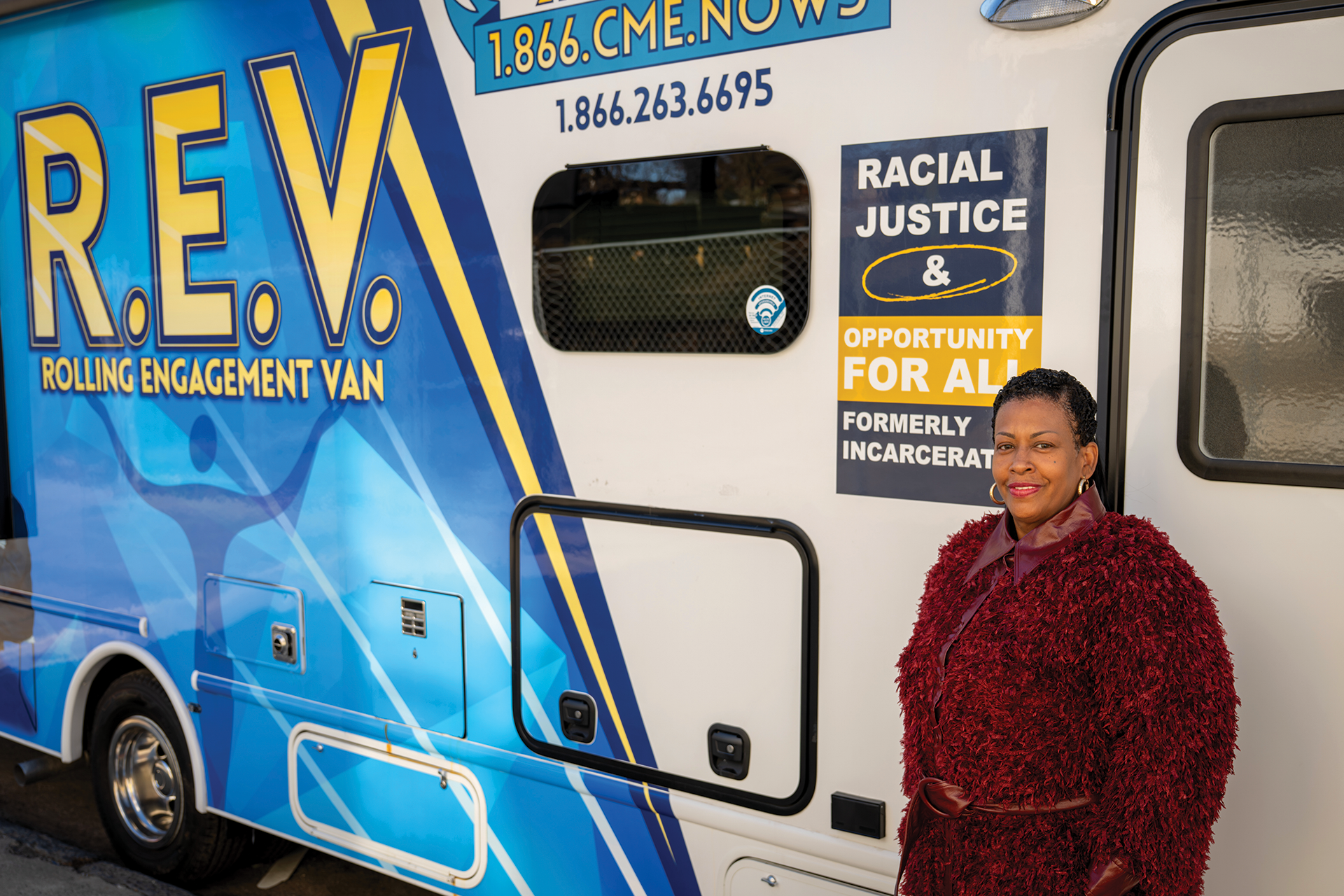
The need for such services has soared. Between 1980 and 2022, the number of women incarcerated in the United States jumped more than 585%, according to The Sentencing Project, a Washington, D.C., research and advocacy center working for decarceration in the U.S.
Recidivism — rearrest or reincarceration of persons released from prison or jail — stands at 64.7% within the first three years after release, according to the Pennsylvania Department of Corrections Recidivism 2022 Report. Black women, who comprise the majority of WNP’s clients, have higher rates of recidivism due to the systemic racism that put them at risk in the first place, says the National Black Women’s Justice Institute, a Brooklyn nonprofit.
The Philadelphia District Parole Offices, the Philadelphia District Attorney’s Office and the Defender Association of Philadelphia recommend candidates for WNP. Completion of an online form helps WNP screen potential residents. “[Some women say,] ‘I’ve been raped, molested [and] can’t move [on],’” Rev. Simmons says. “I’m looking for people that have accepted their past and are ready to move forward.”
Selected applicants start weekly prerelease mentoring via Zoom. Topics include relapse prevention, anger management, avoiding domestic violence and financial literacy. WNP staffers also visit them in person.
You can’t build a stable life on the street or living in the back of a garage.”
— Reverend Dr. Michelle Simmons, Founder and CEO of Why Not Prosper
Upon leaving jail or prison, clients are assigned to one of three WNP housing facilities, which together can accommodate 25 women. “You can’t build a stable life on the street or living in the back of a garage,” Rev. Simmons says. Besides shelter, the houses provide the supportive community critical for successful reentry, plus help getting the birth certificates and state IDs necessary to access other services.
WNP’s overall operation relies on funding from foundations, the government and donations, but program residents pay $400 per month plus $100 toward food. The money may come from Supplemental Security Income (Social Security), family support or part-time work, Rev. Simmons says. In some cases, WNP’s contract with the Philadelphia Department of Prisons pays a client’s contribution for the first two months.
To begin rectifying such ills as the long-term effects of poor prison diets, the program offers healthcare resources. To promote emotional well-being, WNP residents get individual and group counseling and attend relapse-prevention sessions.
WNP also helps returning women with the wrenching issue of reuniting families. More than 60% of women in state prisons and nearly 80% of women in jails have children under 18, according to the Prison Policy Initiative, a Massachusetts nonprofit focused on “the harms of mass criminalization.” “The women feel guilt and shame about going to prison,” Rev. Simmons says. “Those feelings could lead them to use [drugs] again without support.”
Education is critical too. About 45% of the women arrive with low literacy, Rev. Simmons says. Besides addressing that need, WNP’s Workforce Academy gives residents workshops in résumé writing and interview skills to help them find and keep gainful employment and offers certifications in computer literacy and other fields.
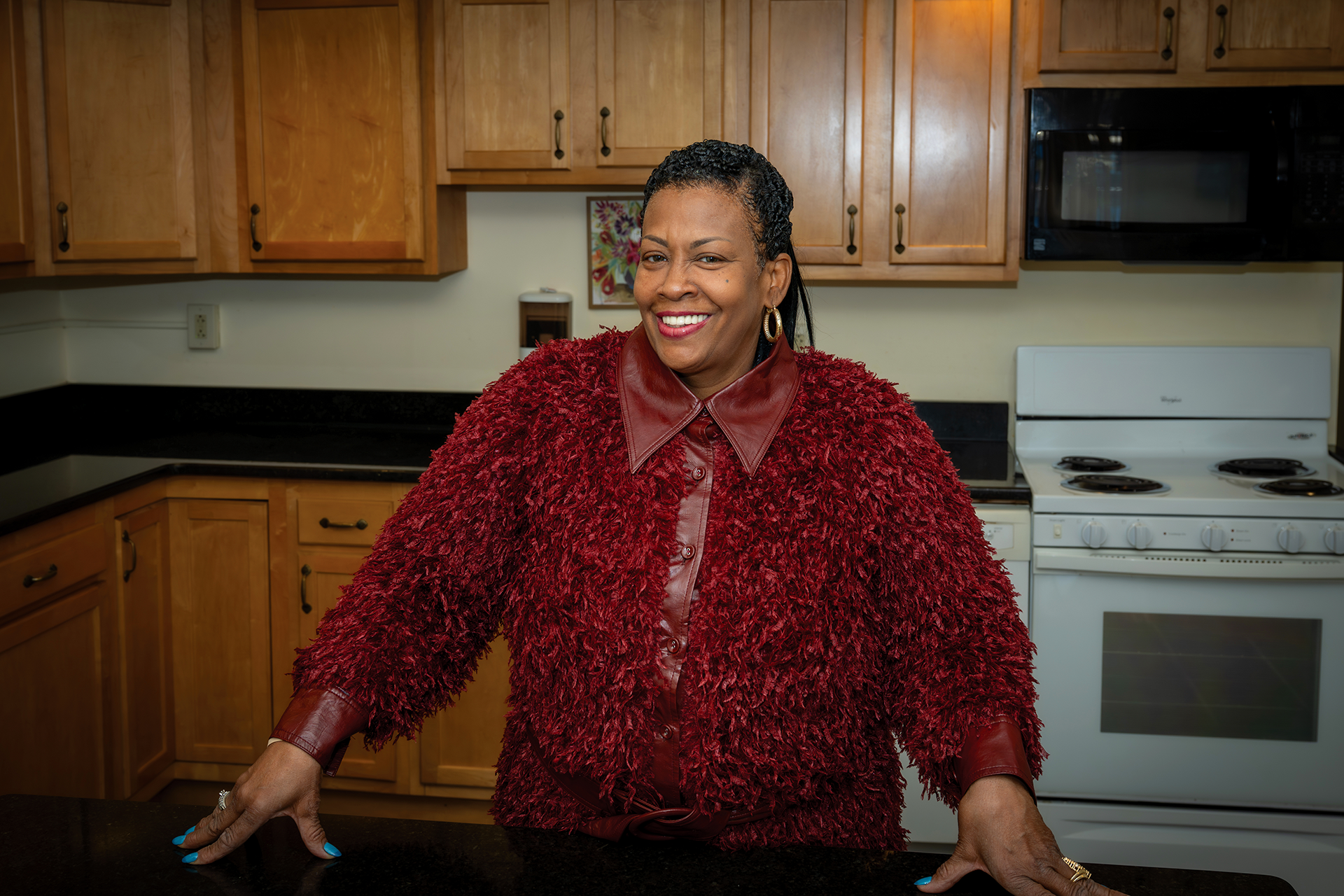
Stays at WNP last six to 12 months, but Rev. Simmons reports that many residents, chafing under the rules, hit a wall after three or four. But the longer they stay, she says, the more likely their success.
“Patience is a major thing about being here,” says C.M., released from prison after four years. She has a job and attends school but left WNP in the middle of one February night. She returned weeks later and asked to continue the program. “Sometimes I let them come back, sometimes I don’t,” Rev. Simmons says.
About 130 people pass through WNP yearly. About 57% graduate. That’s in step with the national rate of recidivism, which hovers at 59%, Rev. Simmons says. “The hardest thing is to see them go back out the door or … back to jail. I used to beat myself up when that happened, but now I accept [that] I did the best I could.”
WNP has had remarkable successes. “I sold drugs, committed check fraud and retail theft,” says Faith Bartley, a longtime resident and current staff member. Convicted of drug charges, she went to prison. Bartley has since become one of the fewer than 4% of formerly-incarcerated women who finish college, earning a bachelor’s degree in human services from Chestnut Hill College in 2023. Several current WNP residents and alums attend the Community College of Philadelphia.
WNP anticipates growth. In 2026, Rev. Simmons hopes to open the Eagle Rock Retreat Center, a resort in the Poconos where residents can take a break from urban grit and learn skills like meditation. A capital campaign is helping to raise the necessary funds.
Meanwhile, WNP extends its reach through a hotline for women just released from incarceration at 1-866-263-6695. In addition, the organization’s Rolling Engagement Van travels throughout Philly twice a week, offering help with mental health issues, hygiene supplies, open warrants and more. The onsite Formerly Incarcerated Renaissance Museum collects, displays and preserves artifacts that highlight the struggles and triumphs of current and former inmates.
Rev. Simmons takes pride in this unique museum, but her deepest satisfaction comes from watching women blossom, “accepting that they are somebody and embracing it,” she says.
To learn more about Why Not Prosper or to donate or volunteer, visit why-not-prosper.org.


